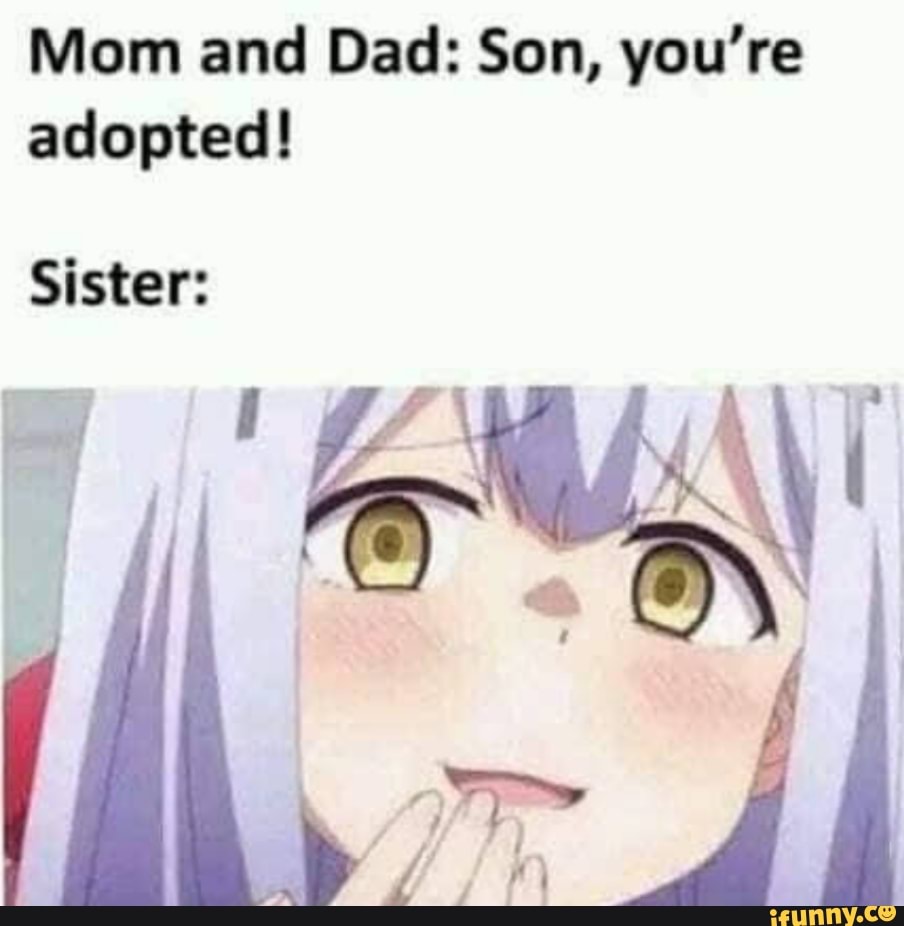Let’s be real here—family dynamics can get complicated, especially when adoption comes into play. You might have grown up thinking you were an ordinary sibling, only to later discover that your “sister” is adopted. It’s a twist in the family story that can leave you with more questions than answers. So, what does it mean when mom and dad tell you, “Your adopted sister isn’t biologically related to us”? Let’s dive into this topic because it’s not just about bloodlines—it’s about love, connection, and understanding.
This revelation can hit differently depending on how open your family has been about adoption. Maybe you’ve always known, or maybe it’s news to you. Either way, it’s essential to unpack what it means to have an adopted sister and how it shapes family relationships. Adoption doesn’t just change the lives of those involved—it changes the entire narrative of what family means.
We’ll explore everything from the emotional side of growing up with an adopted sibling to the legal and practical aspects of adoption. By the end of this article, you’ll have a clearer picture of how adoption impacts family dynamics and why love truly knows no bounds. Let’s get started, shall we?
Read also:How Tall Is Josh From Love Island Unveiling The Height And More
Understanding Adoption: A Quick Primer
Before we dive deep into the specifics of having an adopted sister, let’s talk about adoption in general. Adoption is essentially the legal process where someone takes on the parenting responsibilities of a child who isn’t biologically theirs. It’s a beautiful act of love and commitment that gives kids a chance at a stable, loving home.
Types of Adoption
Not all adoptions are the same. Here’s a quick rundown:
- Domestic Adoption: When a child is adopted within the same country.
- International Adoption: Adopting a child from another country.
- Foster-to-Adopt: When a child is placed in foster care before being adopted by their foster parents.
- Private Adoption: An arrangement made directly between birth parents and adoptive parents.
Each type comes with its own set of challenges and rewards. For families like yours, understanding the type of adoption your sister went through can help explain her unique journey.
Why Do Parents Choose Adoption? [Keyword Variation]
Parents choose adoption for many reasons. Some can’t have biological children, while others simply want to expand their family in a meaningful way. The decision to adopt isn’t taken lightly—it’s a lifelong commitment that requires patience, love, and resources.
According to the Child Welfare Information Gateway, over 135,000 children are adopted in the U.S. each year. That’s a lot of lives being changed for the better. But what does this mean for you as a sibling? Well, it means your parents made a conscious choice to bring another child into their home and hearts, regardless of biological ties.
The Emotional Journey of Growing Up with an Adopted Sister
Growing up with an adopted sister can be both beautiful and complex. On one hand, you share the same upbringing, values, and experiences. On the other hand, there may be differences in background, culture, or even physical appearance that set you apart.
Read also:Cindy Williams Grave A Journey Through Her Legacy And Final Resting Place
Building a Bond Beyond Biology
Love doesn’t discriminate based on DNA. Whether your sister was born into the family or joined through adoption, the bond you share is real. Building a strong sibling relationship means embracing these differences and celebrating what makes each of you unique.
Studies show that adopted children often develop strong resilience and adaptability skills, which can inspire their siblings to grow emotionally. By learning from each other, you create a dynamic that goes beyond traditional family structures.
Addressing Common Questions About Adoption
When you find out your sister is adopted, it’s natural to have questions. Here are some common ones:
- Will my relationship with her change?
- Does being adopted affect her identity?
- How do we talk about it with others?
These questions are valid, and there’s no shame in seeking clarity. Open communication with your parents and sister can go a long way in navigating this new understanding of your family dynamic.
The Role of Mom and Dad in Adoption [Keyword Variation]
Your parents play a crucial role in shaping how adoption is perceived within the family. They’re the ones who decided to bring your sister into the fold, and they’re also responsible for fostering an environment where everyone feels loved and accepted.
It’s important to recognize the sacrifices and efforts your parents made to ensure your sister’s well-being. From navigating the adoption process to addressing any challenges that arise, their commitment speaks volumes about the kind of family you come from.
Challenges Faced by Families with Adopted Children
While adoption brings immense joy, it’s not without its challenges. Families with adopted children may face issues like:
- Identity Struggles: Adopted children sometimes grapple with questions about their origins and identity.
- Social Stigma: Misunderstandings or prejudice from outsiders can create tension.
- Emotional Bonding: Building trust and attachment can take time, especially if the child has experienced trauma.
These challenges don’t define the family—they test its strength and resilience. With love and support, they can be overcome.
Celebrating Diversity Within Your Family
Having an adopted sister means your family is more diverse than the average household. Embrace this diversity! Learn about her cultural background if she’s from a different ethnicity, try new foods, and celebrate traditions that reflect her heritage.
By doing so, you’re not only honoring her story but also enriching your own life. Diversity strengthens families, making them more compassionate and understanding.
Legal Aspects of Adoption: What You Need to Know
Adoption isn’t just an emotional journey—it’s a legal one too. Once a child is adopted, they become the legal equivalent of a biological child. This means they inherit the same rights, responsibilities, and privileges as any other sibling.
Understanding the legalities can help dispel myths and clarify any doubts you might have. For example, did you know that adopted siblings are entitled to the same inheritance as biological ones? It’s all about equality under the law.
Tips for Supporting Your Adopted Sister
Now that you know more about adoption, here are some practical tips for supporting your sister:
- Listen to her without judgment.
- Encourage open conversations about her feelings.
- Stand up for her if others make insensitive comments.
- Help her explore her roots if she’s interested.
Small gestures like these can make a big difference in her life and strengthen your bond.
Conclusion: Love Knows No Bounds
In the end, what matters most isn’t whether your sister shares your DNA—it’s the love and connection you share. Adoption is a testament to the fact that family isn’t defined by biology but by the choices we make to care for one another.
So, the next time someone asks, “Is she really your sister?” you can confidently reply, “Yes, she’s my adopted sister, and she’s just as much a part of this family as anyone else.”
Don’t forget to share this article with friends or family who might benefit from learning more about adoption. And if you have any thoughts or questions, drop them in the comments below. Together, let’s celebrate the beauty of diverse families!
Table of Contents
- Mom and Dad, the Truth About Your Adopted Sister
- Understanding Adoption: A Quick Primer
- Types of Adoption
- Why Do Parents Choose Adoption?
- The Emotional Journey of Growing Up with an Adopted Sister
- Building a Bond Beyond Biology
- Addressing Common Questions About Adoption
- The Role of Mom and Dad in Adoption
- Challenges Faced by Families with Adopted Children
- Celebrating Diversity Within Your Family
- Legal Aspects of Adoption: What You Need to Know
- Tips for Supporting Your Adopted Sister
- Conclusion: Love Knows No Bounds


